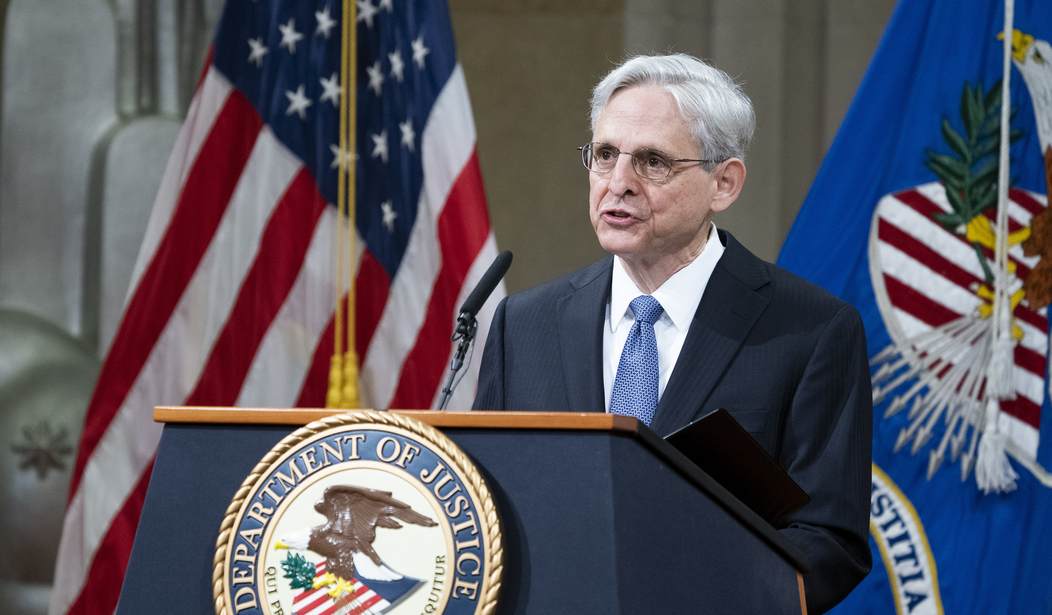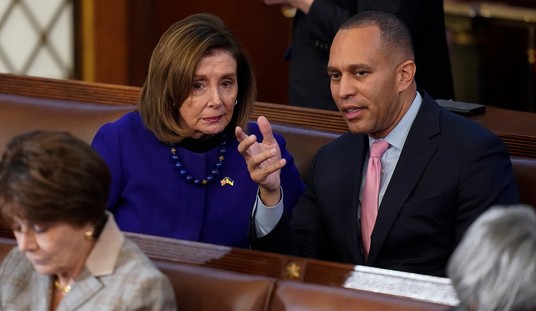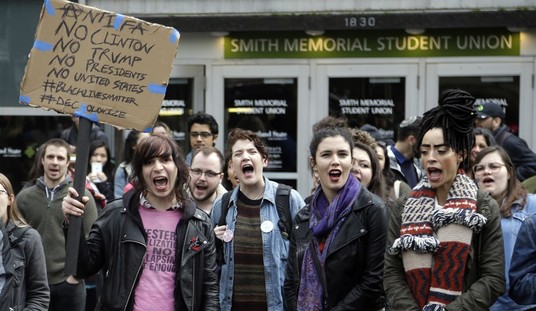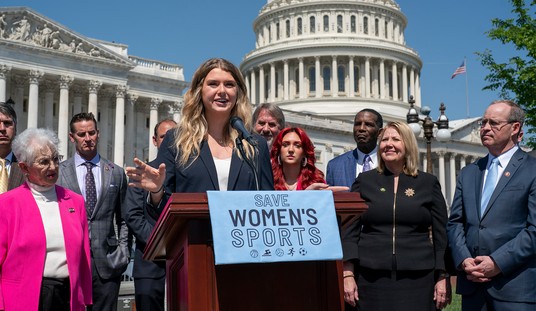This was inevitable after the wave of progressive hysteria that Georgia’s new voting law provoked. However, it has the potential for a spectacular backfire:
The Justice Department will file a federal lawsuit Friday against the state of Georgia for its efforts to enact new voting restrictions that federal authorities allege discriminate against Black Americans, according to people familiar with the matter.
The legal challenge takes aim at Georgia’s Election Integrity Act, which was passed in March by the Republican-led state legislature and signed into law by Gov. Brian Kemp (R). The law imposes new limits on the use of absentee ballots, makes it a crime for outside groups to provide food and water to voters waiting at polling stations, and hands greater control over election administration to the state legislature. …
The action is the first major voting rights case the Justice Department has filed under the Biden administration and comes as Republican-led state governments across the country have been seeking to impose broad new voting restrictions in the wake of President Biden’s victory over Donald Trump last November. Trump has spent months waging a baseless effort to discredit the result, making false and untrue allegations of widespread voter fraud.
That’s certainly how the Department of Justice and Attorney General Merrick Garland will sell this lawsuit. The White House has gone all-in on the hysteria as well, calling the bill “Jim Crow on steroids” as a way to fire up progressives and paint Republicans as racists. The problem comes when this shifts from a political question to actual legal arguments.
The courts won’t be interested in the political history; they will want to review the final version of the bill itself. As fact-checkers have repeatedly pointed out, Joe Biden and his administration have repeatedly and ridiculously mischaracterized the law. For instance, the claim that the bill restricted early voting is entirely rubbish, as the Washington Post’s Glenn Kessler pointed out in March:
One of the biggest changes in the bill would expand early voting access for most counties, adding an additional mandatory Saturday and formally codifying Sunday voting hours as optional. Counties can have early voting open as long as 7 a.m. to 7 p.m., or 9 a.m. to 5 p.m. at minimum. If you live in a larger metropolitan county, you might not notice a change. For most other counties, you will have an extra weekend day, and your weekday early voting hours will likely be longer.
The restrictions on absentee ballots only reduce the time for requests, which still last almost three months:
Mail-in absentee voting will look the most different for voters, especially after 1.3 million people used that method in the November general election. Voters over 65, with a disability, in the military or who live overseas will still be able to apply once for a ballot and automatically receive one the rest of an election cycle. But the earliest voters can request a mail-in ballot will be 11 weeks before an election instead of 180 days — less than half as much time.
The final deadline to complete an application is moved earlier, too. Instead of returning an application by the Friday before election day, SB 202 now backs it up to two Fridays before. Republican sponsors of the bill and local elections officials say this will cut down on the number of ballots rejected for coming in late because of the tight turnaround.
One can criticize this for political reasons, but there’s no reason to think that this restricts voting in any meaningful way. A court might question the motives for the changes, but the amount of time allowed is still obviously reasonable, or at least not unreasonable to the point of violating federal voting laws or the Constitution.
That becomes especially true when comparing these regulations to those in other states that the DoJ is not currently suing. Kessler picked out one in particular:
We were curious what the early-voting rules were in Delaware, Biden’s home state. It turns out Delaware did not allow any in-person early voting in 2020. A law signed in 2019 will permit early voting starting in 2022. (Voting hours are 7 a.m. to 8 p.m. on Election Day.)
With all of that context, Garland has a tough fight to make the case he claims — that Georgia’s law specifically disenfranchises black voters. The bill expands minimum hours at early-voting sites and treats all absentee ballots the same. Good luck demonstrating specific disenfranchisement from that.
And even if Garland can find a sympathetic district court judge, this isn’t going to survive on appeal. Whatever the initial decision is, we can count on it rapidly rising to the Supreme Court, which might need to act on it next term in order to provide Georgia clarity on its midterm voting process. Assuming Garland can convince the three liberal justices that Georgia’s law is somehow less generous than Delaware’s and that there’s any disparate impact, which of the other six justices will Garland hope to convince? Maybe John Roberts, and then only mayyybeeeee. A 5-4 rejection might serve the political purposes of Garland and Biden, but it might be a lot more lopsided in the end, given the actual reality of the law rather than the White House’s hysterical misrepresentations of it over the past few months.
If the courts end up rejecting this firmly — as they should — it will expose the hysteria and manipulation for what it really is. And if that happens before the midterms, the White House will pay the price for it across the entire political spectrum.








Join the conversation as a VIP Member